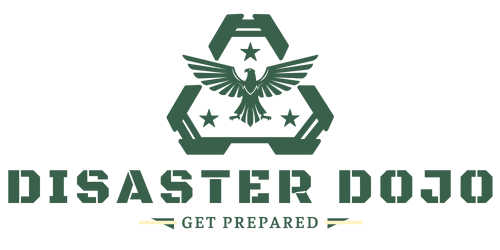In times of uncertainty, having access to reliable healthcare is essential. However, what happens when there is no doctor available? This article explores the importance of preventive and emergency healthcare in uncertain times, highlighting the need for individuals to become more self-sufficient in addressing their healthcare needs. From basic preventive measures to essential emergency first aid, this article provides practical tips and valuable insights to help you navigate through uncertain times when medical professionals may not be readily accessible. Stay prepared and take control of your health with the knowledge and resources discussed in this article.
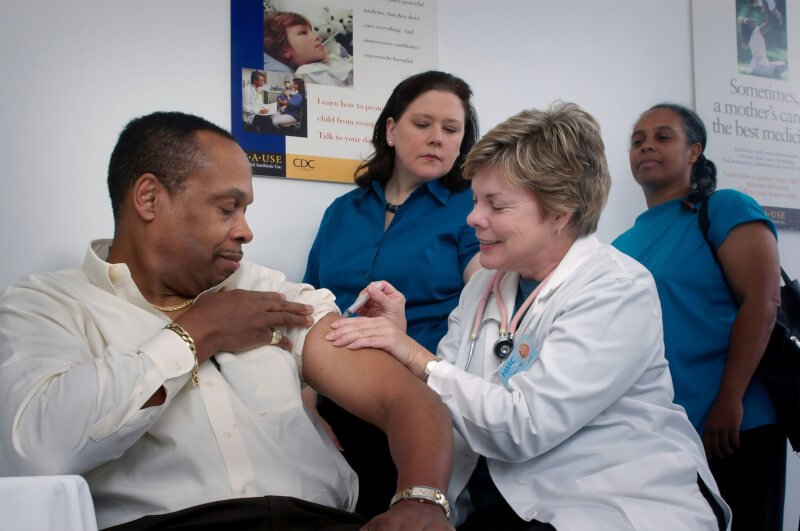
Preparing for Health Emergencies
Creating a First Aid Kit
When it comes to health emergencies, having a well-stocked and properly organized first aid kit can make all the difference. Your first aid kit should include essential items such as bandages, adhesive tape, antiseptic wipes, scissors, tweezers, and gloves. You should also include medications like pain relievers, antihistamines, and antacids. Don’t forget to regularly check and replenish your first aid kit to ensure that you are always prepared for any situation that may arise.
Knowing Basic First Aid Techniques
In addition to having a first aid kit, it’s crucial to have a basic understanding of first aid techniques. Knowing how to perform CPR, stop bleeding, and treat common injuries like sprains and burns can be lifesaving in emergencies. Consider taking a first aid course to learn these skills, as well as how to properly assess and respond to various medical situations. By being knowledgeable in basic first aid techniques, you’ll have the confidence and ability to provide immediate care until professional help arrives.
Developing an Emergency Communication Plan
Communication is vital during health emergencies, especially when every second counts. It’s essential to have an emergency communication plan in place for you and your loved ones. This plan should include emergency contact numbers, a designated meeting place, and a backup communication method in case traditional methods are unavailable. By establishing a clear communication plan, you’ll be able to quickly relay important information and stay connected in times of crisis.
Maintaining Good Health in Uncertain Times
Eating a Balanced Diet
Maintaining a balanced diet is crucial for your overall health, especially during uncertain times. Focus on consuming a variety of fruits, vegetables, whole grains, lean proteins, and healthy fats. Avoid excessive intake of processed foods, sugary snacks, and beverages. A balanced diet provides your body with essential nutrients, strengthens your immune system, and helps you maintain a healthy weight.
Getting Regular Exercise
Regular physical activity is a vital component of maintaining good health, even in uncertain times. Aim for at least 150 minutes of moderate-intensity aerobic exercise or 75 minutes of vigorous-intensity exercise every week. Incorporate activities you enjoy, such as walking, cycling, dancing, or yoga, to make exercise part of your daily routine. Regular exercise not only improves your physical health but also enhances your mental well-being.
Practicing Good Hygiene
Practicing good hygiene is essential for preventing the spread of illnesses and maintaining your health. Wash your hands frequently with soap and water for at least 20 seconds, especially after using the restroom, before eating, and after coughing or sneezing. Use hand sanitizers with at least 60% alcohol if soap and water are not available. Cover your mouth and nose with a tissue or your elbow when you cough or sneeze to prevent the spread of germs. Regularly clean and disinfect frequently touched surfaces in your home and workplace.
Self-Diagnosing Common Illnesses
Understanding Symptoms and Causes
While it’s important to consult a healthcare professional for an accurate diagnosis, understanding common symptoms and causes of illnesses can help you make informed decisions about seeking medical care. Educate yourself about the signs and symptoms of common illnesses such as the flu, colds, allergies, and stomach infections. Recognizing these symptoms early on can help you take necessary precautions and seek appropriate medical attention when needed.
Researching Potential Treatments
When faced with common illnesses, it can be helpful to research potential treatments to alleviate symptoms and promote recovery. Look for reputable sources of information, such as medical websites and trusted health organizations, to learn about home remedies, over-the-counter medications, and lifestyle changes that may offer relief. Keep in mind that self-treatment should always be discussed with a healthcare professional to ensure it is safe and appropriate for your specific condition.
Seeking Online Medical Advice
In uncertain times, online medical resources can provide valuable information and guidance. There are various telehealth platforms and trustworthy websites where you can seek advice from licensed healthcare professionals. Online consultations can be an effective way to receive medical advice, especially for non-emergency situations. However, it’s essential to choose reputable sources and consider online advice as a supplement to, rather than a replacement for, in-person medical care.
Natural Remedies for Common Ailments
Essential Oils and Their Uses
Essential oils have been used for centuries as natural remedies for various ailments. Lavender oil may help relax and promote sleep, while tea tree oil has antimicrobial properties and can be used for skin issues. Peppermint oil is known for its soothing effects on digestion, and eucalyptus oil can help alleviate congestion. It’s important to use essential oils safely, following proper dilution guidelines and considering any potential allergies or sensitivities.
Homeopathic Remedies
Homeopathy is a system of alternative medicine that aims to stimulate the body’s natural healing processes. Common homeopathic remedies include Arnica montana for bruising, Calendula for wound healing, and Nux vomica for digestive issues. While some people find relief through homeopathy, it’s essential to consult with a qualified homeopathic practitioner to ensure appropriate usage and determine if it aligns with your overall healthcare approach.
Herbs and Plants for Healing
Many herbs and plants have medicinal properties and can be used as natural remedies for common ailments. Chamomile can help with relaxation and sleep, ginger is known for its anti-inflammatory properties, and turmeric can support joint health. Research different herbs and plants, and consider incorporating them into your diet or using them in teas, tinctures, or topical applications. Remember to consult with a healthcare professional, especially if you have any underlying medical conditions or take prescription medications.
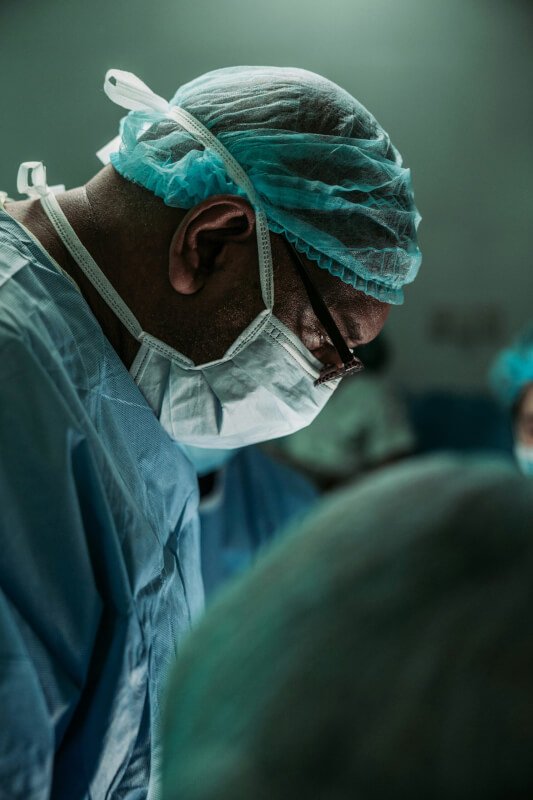
Dealing with Common Injuries
Treating Cuts and Wounds
Cuts and wounds are common injuries that can occur in everyday life. For minor cuts, wash the wound thoroughly with water and mild soap, and apply an antiseptic ointment before covering it with a sterile bandage. For deeper wounds or those that won’t stop bleeding, seeking medical attention is essential. It’s also important to ensure that your tetanus vaccine is up to date to prevent infection.
Managing Sprains and Strains
Sprains and strains can occur during physical activities or accidents. Initially, rest the affected area, apply ice to reduce swelling, and elevate it if possible. Compression with an elastic bandage can also help. If the pain and swelling persist or you are unable to bear weight, seek medical attention to rule out more severe injuries. In some cases, physical therapy or specialized treatment may be necessary for a full recovery.
Identifying Fractures and Dislocations
Fractures and dislocations can be more serious injuries that require immediate medical attention. If you suspect a fractured bone, immobilize the injured area by using a splint or a makeshift support, and seek immediate medical care. Dislocations occur when the bones in a joint are displaced, causing pain and limited movement. Do not attempt to relocate the joint yourself; instead, seek medical professional assistance to properly realign the dislocated joint.
Addressing Dental Emergencies
Managing Toothaches
Toothaches can be excruciating, and there are some steps you can take to manage the pain temporarily until you can see a dentist. Rinse your mouth with warm saltwater, floss gently to dislodge any trapped food particles, and apply a cold compress on the outside of your cheek to reduce swelling. Over-the-counter pain relievers may also provide temporary relief. However, it’s crucial to schedule an appointment with a dentist as soon as possible to diagnose and treat the underlying cause of the toothache.
Dealing with Lost Fillings or Crowns
If you lose a filling or crown, it’s important to address the issue promptly to prevent further damage to the affected tooth. Clean the area with warm water and try to place the filling or crown back into the tooth using dental cement or temporary dental adhesive available at pharmacies. Avoid chewing on the affected area and seek dental care as soon as possible to ensure a proper and long-term solution.
Handling a Broken Tooth
A broken tooth can be distressing, but there are immediate steps you can take to manage the situation until you can see a dentist. Rinse your mouth with warm water to clean the area and apply a cold compress to reduce swelling. If you can find any broken-off fragments, keep them in milk or saliva to preserve them for possible reattachment. Seek dental care promptly to prevent infection and discuss appropriate treatment options.
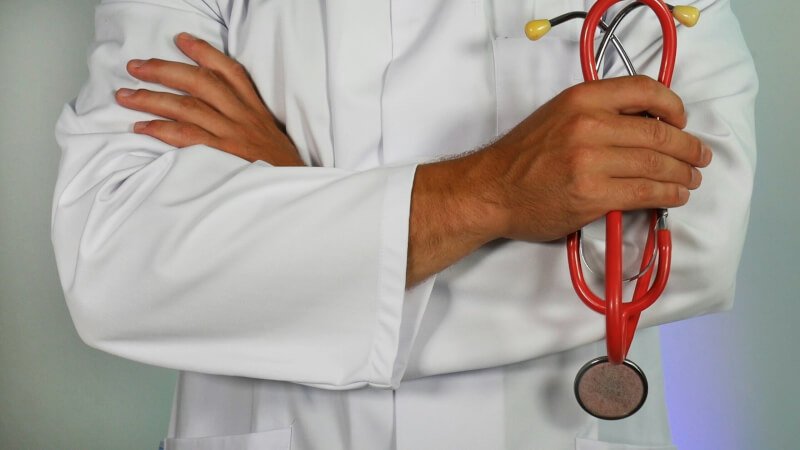
Mental Health Support in Challenging Times
Practicing Self-Care and Stress Management
During uncertain times, taking care of your mental health is just as important as your physical well-being. Practice self-care activities such as maintaining a regular sleep schedule, engaging in hobbies, and practicing relaxation techniques like deep breathing or meditation. Incorporate stress-reducing activities into your routine, such as exercising, spending time outdoors, or connecting with loved ones. Prioritizing your mental health allows you to tackle challenges more effectively and maintain resilience.
Seeking Online Counseling Resources
If you’re experiencing difficulty managing your mental health, consider seeking professional help through online counseling resources. Many licensed therapists and counselors offer virtual sessions, providing a safe and confidential environment to discuss your concerns. Online counseling can be a convenient and accessible option, allowing you to receive support from the comfort of your own home. Don’t hesitate to reach out to professionals who can guide you in overcoming challenges and improving your mental well-being.
Building a Support Network
Building a support network is vital for mental health, especially during challenging times. Surround yourself with individuals who uplift and support you. Reach out to friends, family, or community groups for mutual support and understanding. Participate in online support groups or join virtual communities centered around shared experiences or interests. Sharing your feelings, asking for help when needed, and receiving encouragement from others can significantly contribute to your mental well-being and resilience.
Preparing for Natural Disasters
Creating an Emergency Preparedness Plan
Natural disasters can strike unexpectedly, and being prepared is crucial for your safety and well-being. Create an emergency preparedness plan that includes identifying potential hazards in your area, establishing a communication plan, and designating a safe meeting place. Prepare an emergency kit with essential supplies like non-perishable food, water, flashlights, batteries, and a first aid kit. Stay informed about local emergency procedures and evacuation routes to ensure you can respond effectively in times of crisis.
Stocking Up on Essential Supplies
In uncertain times, it’s essential to have an ample supply of essential items to sustain you and your family during a natural disaster. Along with non-perishable food and water, stock up on necessary medications, personal hygiene products, and cleaning supplies. Consider having extra batteries, portable phone chargers, and a battery-powered or hand-crank radio in case of power outages. Regularly check your supplies, rotate perishable items, and ensure you have a sufficient amount to last at least a few days in case of emergencies.
Understanding Evacuation Routes
Understanding evacuation routes is crucial in preparing for natural disasters. Familiarize yourself with the predetermined evacuation routes in your area and have a plan in place to travel to a safe location if necessary. Stay updated on local emergency alerts and listen to authorities for evacuation orders. Prepare a “go-bag” with important documents, cash, essential medications, and clothing in case you need to evacuate quickly. Having a clear understanding of evacuation routes ensures your safety and the safety of your loved ones in times of natural disasters.
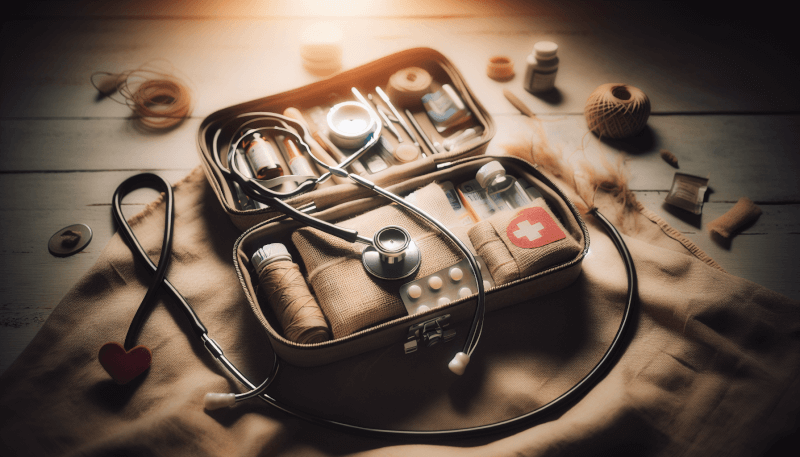
Seeking Community-Based Healthcare
Joining or Creating Mutual Aid Networks
Community-based healthcare can be a valuable resource in uncertain times. Mutual aid networks are community-led initiatives that provide support and assistance to those in need. Consider joining an existing mutual aid network in your community or collaborate with others to create one. These networks often provide resources like food, medical supplies, and emotional support during challenging times. Participating in mutual aid networks fosters a sense of community and solidarity while ensuring that everyone’s healthcare needs are met.
Utilizing Community Health Clinics
Community health clinics offer accessible and affordable healthcare services to individuals and families, particularly those who may not have insurance or face financial barriers to care. These clinics provide a range of services, including primary care, preventive care, vaccinations, and screenings. Research community health clinics in your area and familiarize yourself with the services they offer. Utilizing community health clinics ensures that you have access to essential healthcare services and support, even during uncertain times.
Accessing Nonprofit Medical Services
Nonprofit organizations often play a crucial role in providing healthcare services to underserved communities. These organizations may offer free or low-cost medical services, such as dental care, vision exams, and mental health counseling. Research nonprofit medical organizations in your area and find out what services are available to you. These organizations strive to bridge gaps in healthcare accessibility, ensuring that individuals and families have access to necessary medical care, regardless of their financial situation.
Bridging the Gap: Telemedicine and Remote Healthcare
Exploring Telemedicine Options
Telemedicine has revolutionized healthcare delivery, especially in uncertain times when in-person visits may not be possible. Telemedicine allows you to consult with healthcare professionals remotely and receive medical advice, diagnosis, and treatment plans. Explore telemedicine options available in your area or online. Many healthcare providers offer virtual consultations, either through video calls or phone calls, providing convenient and timely access to healthcare services. Telemedicine can be an effective way to address non-emergency medical concerns and receive necessary care from the comfort of your own home.
Using Remote Healthcare Devices
Remote healthcare devices can help monitor your health and provide valuable information to healthcare professionals without the need for in-person visits. Devices like blood pressure monitors, glucose meters, and wearable fitness trackers can track vital signs and health indicators. This information can be shared electronically with healthcare providers, allowing them to monitor your health remotely and make informed decisions about your care. Consult with your healthcare provider to determine which remote healthcare devices may be beneficial for you.
Accessing Online Medical Resources
Online medical resources can be a valuable source of information and support during uncertain times. Reputable websites, medical journals, and health organizations provide a wealth of information on various health topics. These resources can help you educate yourself about specific health conditions, treatment options, and preventive measures. However, it’s always important to critically evaluate online information and consult with healthcare professionals for personalized advice and guidance.
In uncertain times, it’s essential to be prepared for health emergencies, maintain good health practices, educate yourself about common illnesses, explore natural remedies, know how to address common injuries, and prioritize mental health. By following these guidelines and being proactive in your healthcare approach, you can effectively navigate uncertain times and ensure the well-being of yourself and your loved ones. Remember, seeking professional medical advice is always recommended, and online resources should be used as a complementary tool for education and support. Stay informed, stay prepared, and prioritize your well-being.

